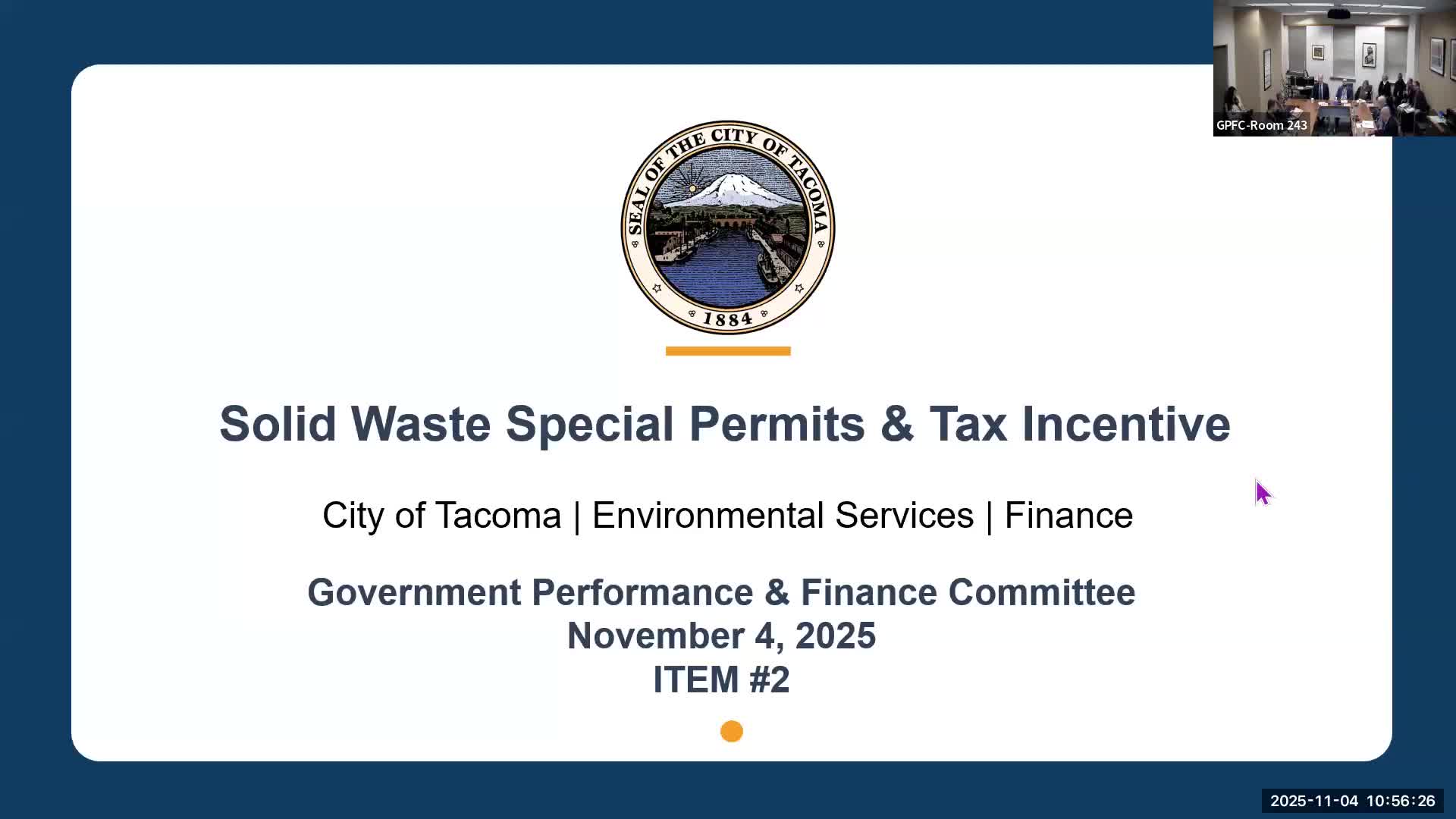Tacoma updates special-permit program, reports early gains and revenue estimates for tiered recycling tax
Get AI-powered insights, summaries, and transcripts
Subscribe
Summary
Solid Waste staff updated the Government Performance and Finance Committee on Nov. 4 about implementation of the special-permit program and the tiered recycling tax deduction that took effect Jan. 1, 2025.
Solid Waste staff updated the committee on Nov. 4 about the special-permit program and the tiered recycling tax deduction that took effect Jan. 1, 2025. The program ties an annual certified recycling rate to a tax deduction for permitted solid-waste businesses and requires annual recycling-report certification to qualify.
Chris Griffith, division manager for Solid Waste, said the city issued 58 permits in the initial round and 46 permits in the current round; some businesses previously permitted no longer required a permit under the code, some are no longer operating, and staff are following up with others to confirm status. Staff described work to automate permit administration and reporting and to certify recycling reports each fall for application to the subsequent year's tax deductions.
Early reporting from permitted companies captured nearly 400,000 tons of recycling, which staff calculated as approximately a 62% recycling rate among the subset of businesses that submitted reports (staff cautioned the dataset is skewed because filing is voluntary for firms that do not seek the deduction). The city allowed reporting of alternative daily cover as equivalent to 50% recycling through 2027; staff said they will revisit that allowance next year.
Finance staff provided preliminary revenue estimates. The tiered deduction was projected to generate about $1.1 million in annual taxes (approximately $975,000 from private collectors and $125,000 from city solid-waste accounts). Annualized collections based on available monthly and quarterly filings are slightly below the projection; staff said they are working with several large filers to reconcile reporting and tax liabilities and expect a closer match to estimates after those reconciliations and the launch of an audit program.
Next steps identified by staff include strengthening the compliance and audit program to verify recycling reports, improving interdepartmental communications with Tax & License to identify potential noncompliant businesses, refining reporting requirements and revisiting the alternative-daily-cover treatment in 2026. Committee members encouraged robust enforcement and outreach, noting illegal dumping and contamination of recycling streams as concerns that could affect program success.
Meeting context: the presentation was an informational update with no formal action recorded. Staff reported early data and committed to return with refined compliance and enforcement plans and revenue reconciliations.
